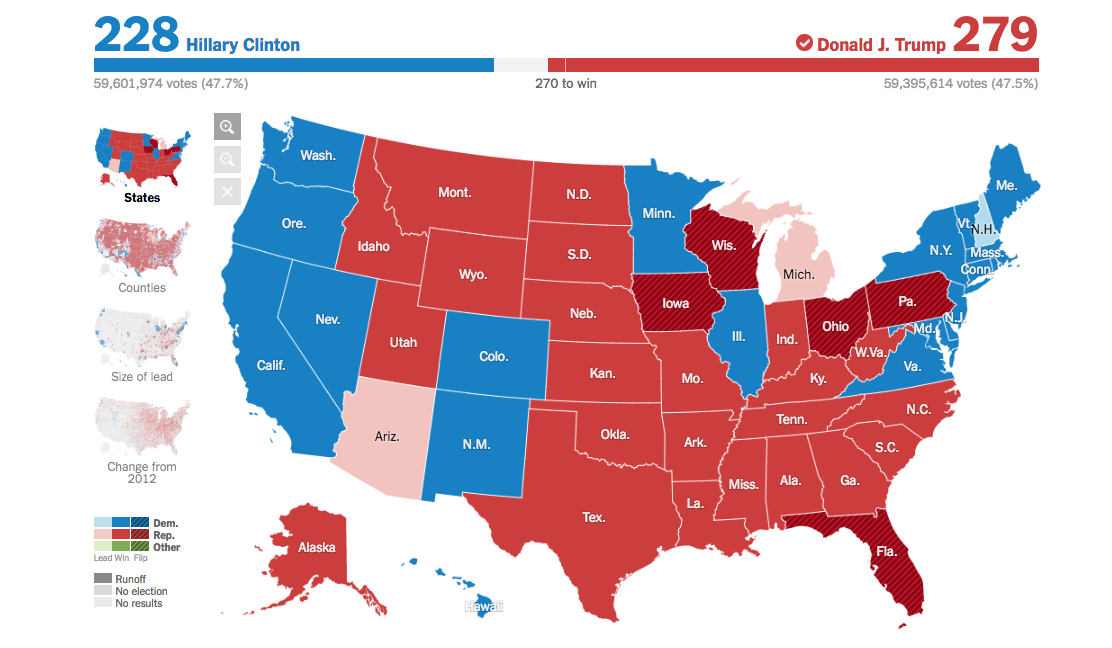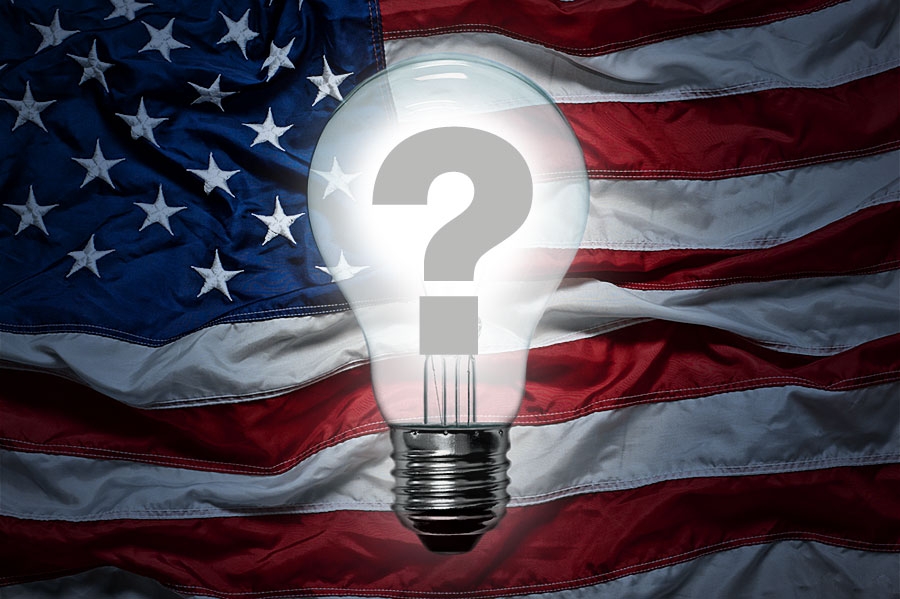Innovation — you lost.
I’m as shell shocked as anyone about the results of yesterday’s presidential election. But here are a few initial thoughts on the business and public policy impacts:
— Donald Trump won the election because disgruntled voters projected their desire for change on the candidate who best represented a rupture with the existing system. But ask any successful startup CEO: Disruption is not the same as innovation, as the latter depends on the creation of new markets and value networks. Nobody knows what a Trump presidency will look like. But his disruptive slogan — “Make America Great Again” — is rooted in nostalgia. Nostalgia doesn’t embrace new products, new markets or new values. Nostalgia is backward, not forward looking. Trump is not the Uber or Airbnb of politics. A better analogy might be Wells Fargo, a company that responded to the challenges of a changing world by engaging in sales practices that were not only unethical but were also rooted in last century ideas about how to grow markets and a customer base.
— The presidential election wasn’t so much a referendum on education as it was a snapshot of a national education system in crisis. Trump won the election on the backs of non-college educated men. The vote reflected the bifurcation of the nation’s K-12 and higher education institutions and a model of educational attainment and economic success dominated by elites. No less than the fate of the country as a unified entity hinges on an affordable and equitable K-12 and university system.
— On a related note: This morning, presidents of Oregon’s public universities issued a post-Measure 97 response calling on the Oregon legislature to invest a minimum of $100 million in state colleges to help bring down the cost of tuition and ensure universities continue to act as incubators of new ideas and, yes, innovations.
— Oregon business scored a win on Measure 97. They lost on the Trans Pacific Partnership and other global trade policies. A year and a half ago, I stood in a crowd with dozens of CEOs on the Nike World Headquarters to hear President Obama give a straight out of Nike marketing pitch for the Trans Pacific Partnership, a trade agreement Trump is expected to kill on arrival.
— The nation’s urban-rural divide is far worse than anyone thought. As the demographic tally indicates, the U.S. is not a country of red and blue states; we are a nation of blue cities and red rural areas. This isn’t news to Oregonians but also suggests the city-country gap is getting bigger, not smaller — to the extent the divide now defines our national identity. At the same time, I’m betting the idea of Cascadia (an independent regional economic alliance comprised of California, Washington and Oregon) gets a boost from the election. Just look at the electoral map:
— The election confirmed that the future of innovation is local. And, to end on a positive note: Oregon is better positioned than other states to profit from the narrow, inwardly-focused social, political and economic trends sweeping this country. From the burgeoning cannabis industry to sustainable wood products and the creation of a locally sourced food system, the state is well on its way to making old ideas, and industries, fresh, new and relevant for the next generation of Oregonians. Hope springs eternal.






